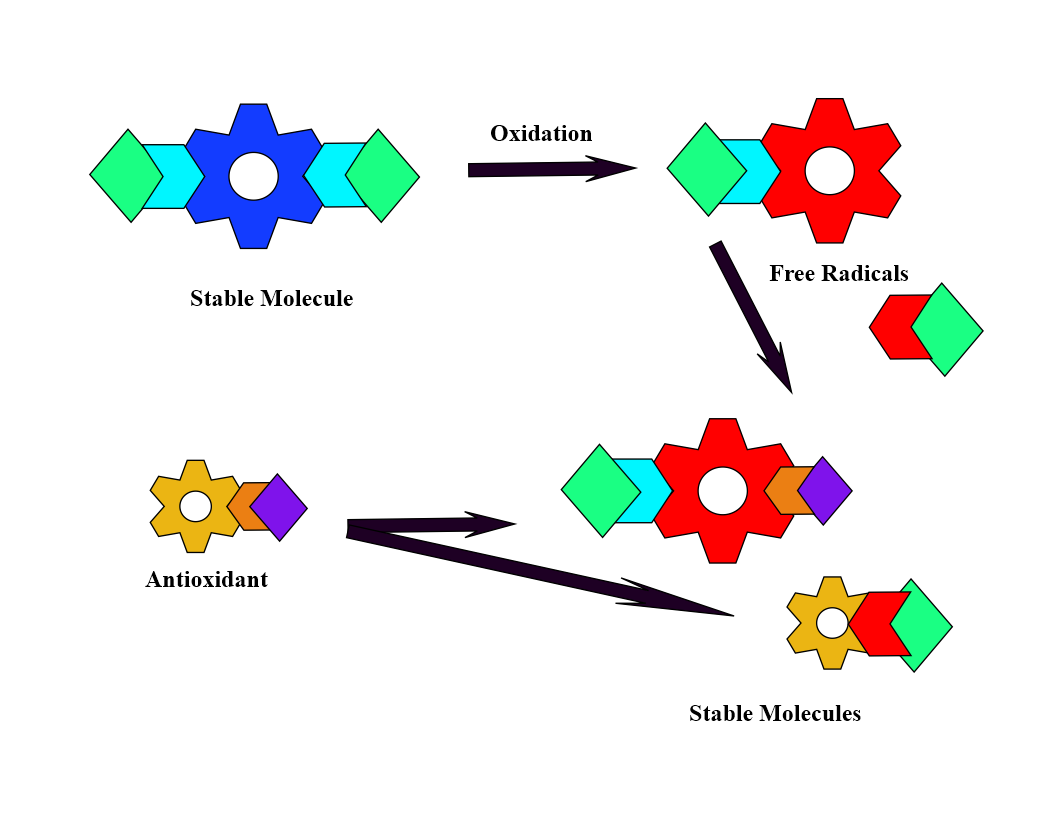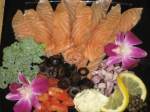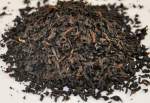
Benefits Of Loose Leaf Tea
The benefits of loose leaf tea, for both spiritual and physical health, have been known for centuries to the Chinese. Chinese legend suggests that Shennong, a Chinese Emperor about 2735 BC tested herbs, on himself. Occasionally poisoned, he drank boiled water with tea leaves in it. The Emperor would also chew tea, leaves and stems, to counteract the toxic effects. Taking pause, while drinking a cup of tea, allows for gratitude so say the Chinese.
Let's no focus on the benefits of loose leaf tea as they relate to physiology, mood, cognitive function and social mores.
Benefits of Loose Leaf Tea - Physiological
Tea Antioxidants and Free Radicals
Tea contains chemicals called polyphenols or catechins that are antioxidants. Vitamin C is perhaps the most well-known antioxidant. Antioxidants are molecules that attach and overpower free radicals. Humans convert (oxidation) food to energy and daily create free radicals. Too many free radicals inside our bodies from poor eating habits, general pollution, and exposure to certain chemicals or radiation, smoking and stress can create free radicals also.
 Powerful Organic Loose Tea Antioxidants Neutralize Free Radicals
Powerful Organic Loose Tea Antioxidants Neutralize Free RadicalsWith unpaired electrons in their atomic structure, free radicals are extremely reactive and try to form bonds with other atoms and molecules. Once successful, its victim is now an electron short and will aggressively try to form a bond with another molecule, causing a cascade effect. The casualty, mitochondria, nerve cells, DNA/RNA, proteins, fats or cellular membranes now begins to malfunction. Unbridled, this degenerative process can bring on chronic diseases like cancer, heart disease, severe and chronic allergies, autoimmune diseases or premature aging.
 1 in 3 May Develop Cancer
1 in 3 May Develop CancerPolyphenols are Anti-carcinogenic, Anti-bacterial and Anti-viral
Tea polyphenols will adhere to melanomas accelerating death (apoptosis). Polyphenols also elevate UDP-glucuronosyl transferase activity in animal tests which could sustain the removal of human drugs, dietary substances, toxins and hormones all precursors of degenerative, chronic, debilitating diseases.
Polyphenols have been evidenced to obliterate Gram-positive bacteria while ignoring Gram-negative. 100 years ago, the British Army understood the benefits of loose leaf tea and filled water bottles with brewed black tea to prevent and control soldier infections.
As an antiviral agent, polyphenols have been reported to inhibit the enzymes that allow viruses to become established in a host cell.
Blood Pressure
Studies have shown that tea can improve the flexibility of arteries and increase the diameter of such vessels called flow-mediated dilation (FMD). However, studies show heat medication may become ineffective with excessive tea drinking.
Bone Strength
Osteoporosis is a degenerative disease in which bone re-absorbing cells, Osteoclasts overpower the bone forming cells Osteoblasts. Maintaining bone strength and density is an ongoing balance and dance between the two cell types. Though mechanisms are still unproven, it is suggested that the various tea polyphenols restore balance either by apoptosis of osteoclasts and by neutralizing hormones that promote osteoclast growth.
 Moderate Exercise Is Crucial For Well Being
Moderate Exercise Is Crucial For Well BeingObesity Loss and Diabetes
The benefits of loose leaf tea consumed regularly results diminished body fat and slimmer waists than the control group. One mechanism of control, gaining acceptance, is that the polyphenols inhibit the production of AGE’s (Advanced Glycation Endproducts). AGE’s have destructive capabilities similar to those of free radicals. AGE’s form normally in the body as a result of regular metabolic processes and the body removes them. However, should the AGE’s accumulate, due to ingestion of toxins or highly cooked food or a body in chronic poor health, the AGE’s attach to other molecules causing them to malfunction. Tea polyphenols aid in the prevention and elimination of AGE’s.
Tea polyphenols with caffeine assist in weight loss by increasing energy usage (thermogenesis) and fat oxidation.
Digestion
In addition to cancer prevention, additional benefits of loose leaf tea, are digestion improvement as documented by Chinese over three thousand years ago. Tea antioxidants facilitate the removal of AGE’s from the body and improve the movement of food through the intestines.
Organic Loose Tea - Mood and Brain Function
Mood and Brain Disorders
Animal studies show polyphenols improve neural connections with increased cognitive abilities. Polyphenols also improve synaptic plasticity, the ability to carry electrical impulses and change connections; all of which affect mood.
Increased measures of Brain-Derived Neurotrophic Factor (BDNF). BDNF is a neurotrophin (protein) and is indispensable to the survival, growth, and differentiation of neurons. BDNF enhancing learning capacity and memory formation. Alzheimer and Parkinson's patients typically have lower than normal levels of BDNF.
However, the benefits of loose leaf tea cannot be had without maintaining healthy sleep time, boosts positive outlooks and cognitive abilities even with patients on drug therapies.
Benefits of Tea - Social
 A Soothing Cup of Tea - Days End
A Soothing Cup of Tea - Days EndSocial Mores
Psychologists recognize that routine brings one peace, pleasure and gratefulness. Historians speak of ancient books about tea ceremony and always refer to tranquility. The benefits of loose tea, from brewing, especially for others, gives us pause to the daily stresses of life. Cooking provides the same spiritual benefits now with the added bonus of using tea as a spice. We have heard countless stories about how sharing a cup of tea can break the ice in strained relationships, including mates, children and mother in law problems.
Common sense and experience tells us to:
- Enjoy the daily Chinese or Japanese tea ceremony
- Stop and smell the roses (with a cup of tea)
- Take your siesta (after tea)
- Take a long deep breath (now steep some tea)
- I need a coffee (tea) break
- It’s time for afternoon tea
The benefits of loose leaf tea - history and science tells us we have just scratched the surface.
We Treasure Our Time With You
Let's all benefit and have fun learning how you use Loose Leaf Tea.
We understand your reluctance to fill out any online forms but we would like to assure you we shield both your and our privacy.
Other Tea Lovers Write
Tea foodies have strong opinions and you can see here.
The Benefits of Loose Leaf Tea Are Many But Alone It Is Not A Cure For Any Disease Not rated yet
We wish to address conflicting views about the health benefits of loose leaf tea. We drink a lot of tea, and we sell and consume organic products. We follow …







